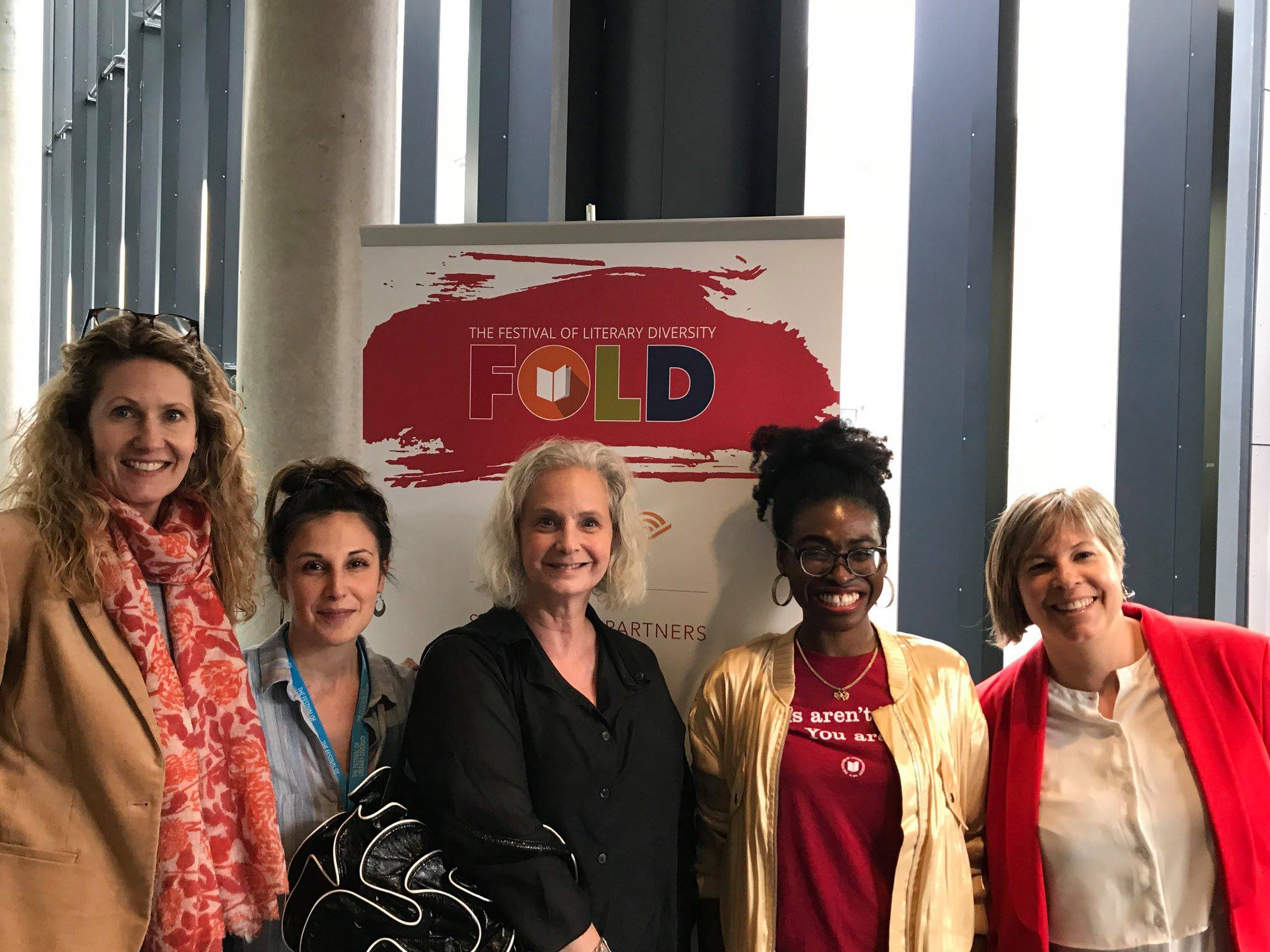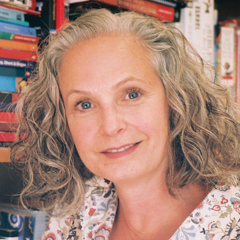What Agents Are Looking For: Interview with Marilyn Biderman
By Sheniz Janmohamed
One afternoon, when I was feeling particularly angsty, I tweeted out to my followers, “How do BIPOC writers get agents?” I received some encouraging responses, as well as some that had me questioning the point of finding one at all. Being a poet, I had always been told that I shouldn’t bother looking for an agent—poets don’t make money (tell that to an instapoet).
Then, in a twist of social media fate, I received a DM from Transatlantic Agency’s Marilyn Biderman, who represents literary luminaries Gwen Benaway, Catherine Hernandez, and Canisia Lubrin, among others. After coming down from my panic-laden excitement, I responded. Biderman, whose expertise lies in literary fiction, memoir and other kinds of non-fiction, was kind enough to chat with me about all things agenting.
We began our discussion by speaking of how we connected—through Twitter, of course. We speak of the divisiveness and power of the medium, how non-fiction of wide appeal can often come from authors with established social media platforms, and how CanLit is shifting with the advent of social media.
Biderman spoke of the necessity to acknowledge her white privilege and act in accordance with that awareness, specifically as an agent, knowing that she feels a responsibility to amplify voices that have been marginalized.
How do you support your writers?
Agents have to acknowledge that there’s a fine line between exploiting writers before they are ready to be published just because publishers are looking for voices like theirs versus advocating for their voices to be heard. Agents have to take great care to ensure their clients’ manuscripts are ready for submission to publishers and not rush their creative processes and work. Artists need to take time with their creative processes. Writers are sometimes tender souls and sometimes not, but regardless, their careers have to be nurtured at their own pace.
I like working with people at the beginning of their careers, so that I can support them in the process of developing their craft. I feel that artists should be empowered and should understand what’s going on with their intellectual property. It’s theirs, not their agents’ or anyone else’s.
People practice in their own way as agents—I come from legal background and I’ve worked on the publishing side. I understand the inner workings of publishing, and because of my experience, I have the ability to see things from both sides, while advocating strongly for my clients. I can tell my authors: “Here’s the reason the publisher has to have the last say on this issue.”
I try to be responsive to people’s varying interest in the business side of things. Sometimes it’s too overwhelming to hear about all that technical stuff at the beginning, and then, as writers grow into their careers, they can take on more information about the business side.
Your CanLit News
Subscribe to Open Book’s newsletter to get local book events, literary content, writing tips, and more in your inbox
What advice would you give to someone looking for an agent?
Firstly, make sure your work fits what an agent is looking for.
If you meet with an agent or have a telephone call with an agent, ask yourself if that agent was REALLY listening to you. Are they asking questions to understand you? You should be talking most of the time.
Pay attention to the process—do they get back to you when they say they will?
Pay attention to your gut, and you will know when an agent is right for you. If you’re pressured into anything, the warning lights should go on—just like in any other relationship.
Make sure your manuscript is as polished as it can be—and, if it’s fiction, it should be clean and complete. Not all agents like to receive the entire manuscript on request, but I do so that if I want to keep reading, I can keep reading.
When does it feel right for you as agent?
The relationship has to fit— you get the person and the person gets you.
I’m fascinated by older women’s voices, like Sharon Butala’s. Her upcoming short story collection, Season of Fury and Wonder, is mind-blowingly good. Yes, shameless plugging!
I may love something but regret that, in my professional opinion, I don’t think I can sell it, and I have to be honest and kind to those people. I may see a voice with enormous potential but not in the current market. My job is to curate for publishers, to find books that publishers want to publish. The market forces have to align for it to be a good fit.
That said, sometimes I take on clients that I’m compelled to take on, because I simply can’t not take them on. And I hope that if I see something extraordinary in a manuscript, even if it doesn’t fit the boxes the market seems to dictate, a publisher will, too.
Most of the time, people come to me with fiction. Non-fiction projects seem to happen more by me going after a person to suggest a non-fiction book. Sometimes it’s recognizing the potential of something becoming a book—once I heard a radio show and knew it was a book waiting to happen.
How have you seen the industry change?
Publishers are looking for “subaltern narratives” and “voices under the stairs.” Voices at the margins are still at the margins, but I’m finding that publishers are increasingly recognizing the market potential for these stories.
Literary fiction is very difficult to sell right now; rom coms and uplifting narratives are more in demand. It’s important that agents read the trades. Unfortunately, no matter how talented the person is, or how good their work is, it doesn’t mean I can sell it.
Publishers don’t have as much capacity as they used to to edit in-house, so they expect more polished writing at the stage of submission than they did years ago.
I remember some authors right at the beginning of their careers, like André Alexis and Madeleine Thien. To see how they’ve become citizens of the literary world, and for agents to be able to bring that change to people’s lives, is so validating. One of my favourite parts of the process of agenting comes when I work up some copy to describe my clients’ work. When they tell me that I got it right, I’m over the moon because it’s my job to make them feel that they and their work are fully seen and understood. And most of the time, that process leads to good news.
What are some of the challenges you face as an agent?
The truth is: we can’t be everything to everyone. To paraphrase Star Trek, I’m literary agent, not a magician.
This is a time for kindness, and I really try hard to be fair.
Many agents put this notice on their websites: If I don’t respond to your query, it means I’m not interested in seeing additional material- thank you so much. But once, this guy wrote to me and told me how terrible it felt not to get any response at all and not to know if his query had even been read. So now, if I’m not interested in seeing additional material, I write a quick, “Not for me, thanks.”
I have closed my list to queries because I simply can’t cope with the numbers— and I feel a bit guilty about that. You can’t close your list to writers and only take referrals and then say you’re trying to support marginalized voices. I’m aware of this contradiction, but I’m also only human, and I reach out to various communities in lots of other ways. I have to prioritise my existing clients, and make sure that I’m preserving my energy, long-term, for them.
Keep in mind that there’s a lot pressure from the industry on agents, and we are judged all the time on our decisions.
We try our best, and if we can’t take on a writer, there are other spaces that can. Diaspora Dialogues has a mentorship program for emerging writers, and it might be a better fit for someone who needs more guidance and development before submitting a manuscript to an agent.
That said, there are stories Canada doesn’t know yet, but it’s going to know soon—if I have anything to do with it.
The views expressed by Open Book columnists are those held by the authors and do not necessarily reflect the views of Open Book.
Sheniz Janmohamed was born and raised in Tkaronto with ancestral ties to Kenya and India. She has an MFA in Creative Writing from the University of Guelph and an Artist Educator Mentor certificate from the Royal Conservatory. A poet, nature artist and arts educator, she regularly visits schools and community organizations to teach and perform. Her nature art has been featured across Turtle Island, including the National Arts Centre and the Art Gallery of Mississauga. She has performed her work in venues across the world and has three poetry collections Bleeding Light (2010), Firesmoke (2014) and Reminders on the Path (2021). She recently served as the Writer-in-Residence at the University of Toronto Scarborough Campus and is the founder of Owning our Stories, the first writing circle of its kind for South Asian women in Ontario.




